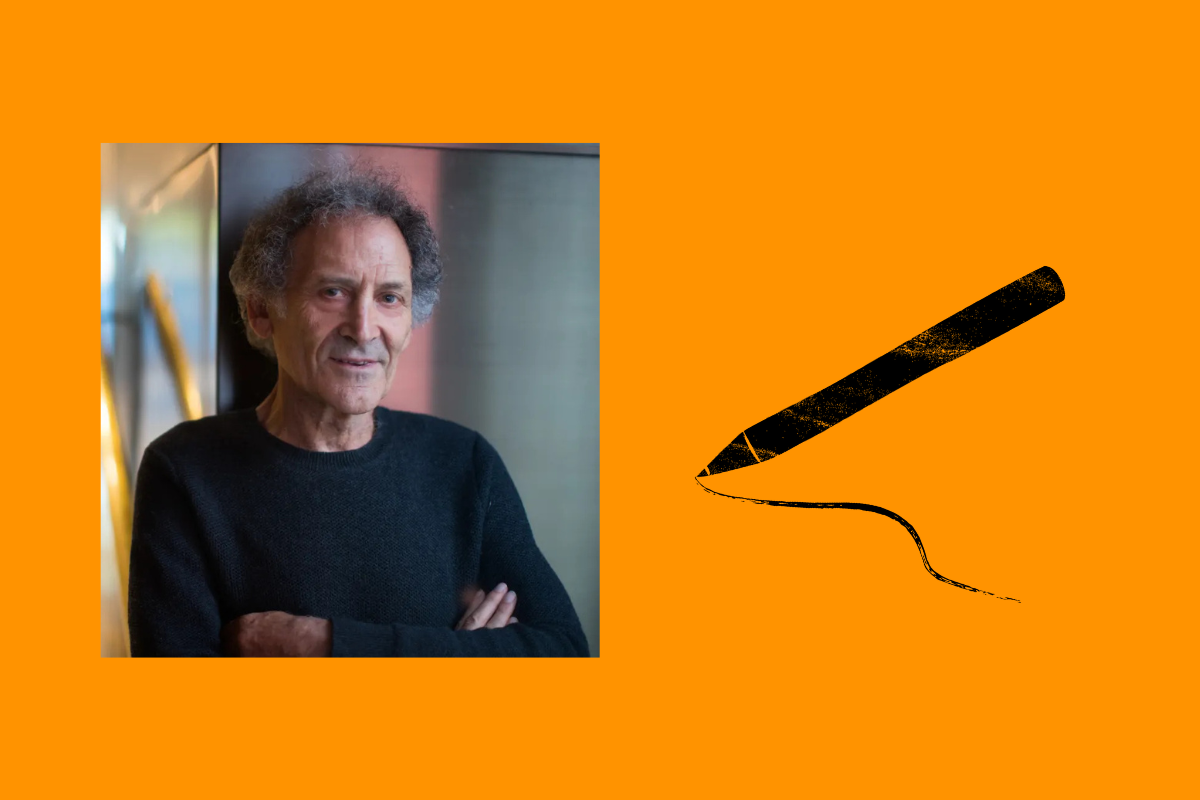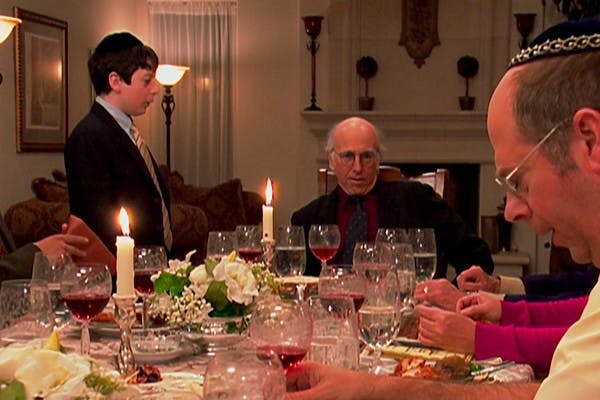Published: 4 July 2023
Last updated: 5 March 2024
ZVI LANDSMAN doesn’t believe in conversion therapy, but his film argues demonising it misrepresents the experience. He talks to ELHANAN MILLER.
For Zvi Landsman, making a documentary about conversion therapy was personal.
A gay film director from a religious family, Landsman had never gone through the process but his ex-partner had spent nine years trying to change his homosexuality.
“It had a huge impact on his life,” Landsman said, “so I had this dream to document the things he spoke about, to document conversion therapy in real time.”
That dream was realised in July 2021, with the debut screening of The Therapy at the Docaviv International Documentary Film Festival in Tel Aviv.
The film won the jury award, immediately making it a sensation on Israeli media. Never before had a film documented conversion therapy from the inside, nor the motivations and sentiments of its participants.

It took Landsman three years to convince Israeli film foundations to fund his idea. At first, he and co-producer Simon Winkler reached out to therapists in Jerusalem who agreed to appear on camera, but failed to deliver participants who would do the same. No one was interested in a movie with blurry-faced characters talking about themselves.
And then Landsman was put in touch with Lev. A 54-year-old American-born, ultra-Orthodox man from Beit Shemesh, Lev had been in and out of conversion therapy for years and continued to believe in it. Divorced from his wife, Lev wanted to share with viewers his attempt to find new romance with a woman. The film’s second protagonist is Ben, a 23-year-old social work student raised ultra-Orthodox and already on his way out, both from orthodoxy and conversion therapy. With these two participants, Landsman was able to win over the funders at Kan, Israel’s public broadcaster. As production was underway, Landsman also secured funding from the prestigious Sundance Institute.
Over the past two years, the film has been screened at numerous Jewish, human rights, and LGBT film festivals, including the Santa Barbara International Film Festival, Movies that Matter in the Hague, and the San Francisco Jewish Film Festival. This month, Landsman was invited to present it to a German audience as part of the LGBT track at the Jewish Film Festival in Berlin and Brandenburg.
The demonisation of conversion therapy ruined Ben's ability to internalise the criticism of it.
Landsman says he created a film that could be watched by “both sides of the aisle”; both religious people who believe that homosexuality is a problem, and religious or non-religious people who have no problem with it and see conversion therapy as the problem.
“I wanted to make a film that everyone can view and learn from. To get tools to move forward from whatever point they’re at. I wanted people to identify with the characters.”
The reaction of Landsman’s family may be an indication of that attitude’s success. His brother-in-law, a religious sex therapist working with observant clients, sent the documentary to a large mailing list of therapists with a warm endorsement.
“This is something I’m very proud of,” Landsman said. “I come from a religious background but live in a ‘liberal’ world, a world which ignores and silences conservative positions, who don’t get a voice in the conversation. I think that’s counterproductive. Even if you’re liberal and believe in your positions, it isn’t helpful to silence your opponents, since then they only try to defeat you, just as you tried to defeat them.”
In the film, Landsman clearly states his opposition to conversion therapy. “Anything other than accepting homosexuality as a normal part of life is bad,” he says. “But it’s important for me that opposing opinions appear as well, as difficult as that is. It’s very challenging to produce a film that won’t be cancelled on both sides.”
As the documentary was being shot, Israeli legislators were debating a bill banning conversion therapy. Both Lev and Ben presented their arguments to the Knesset committee, from opposing sides of the debate. Landsman’s camera captured the outpouring of joy by LGBT activists when the law passed the first calling.
“But was also included Lev’s sad face after the vote. We wanted to remind viewers of what he felt at that moment.”
Many think of conversion therapy as a series of electric shocks, insults, starvation and punishments that participants undergo. But The Therapy shows conversion practitioners to be kind, embracing and supportive figures, not unlike regular therapists.
“That is the undisputed reality,” Landsman says. “But when people watch it, they might think it’s fine. That’s why more militant LGBT activists think it’s a mistake to confuse the audience into thinking these treatments are all right. They say you can’t show that because it harms the struggle against conversion therapy.”
Landsman thinks that attitude is simplistic. Not because conversion therapy is wrong, but because the deep social and religious motivations that lead many people to them should be revealed.
To prove this point, he needs go no further than Ben’s testimony. Ben was aware of the opposition in society to conversion therapy but was convinced that criticism was irrelevant to him. After all, the “therapy” he was undergoing was nothing like the nightmare its detractors were claiming it was.
“He ended up remaining in conversion therapy for seven years and even becoming an advocate for them,” Landsman said. “The demonisation of conversion therapy ruined his ability to internalise the criticism of it and understand it.
“As a film director, I don’t want to do the thinking for my viewers,” Landsman said. “I want them to think for themselves with the material I give them. If they arrive at a different conclusion than mine, that’s OK.”
RELATED STORY
Artist explores desire, sexual deviance in Palestine (Al Monitor)
Adam HajYahia believes that our imagination about Palestine has fallen short and become too narrow, colonised and segregated.
Top photo: Image from The Therapy




